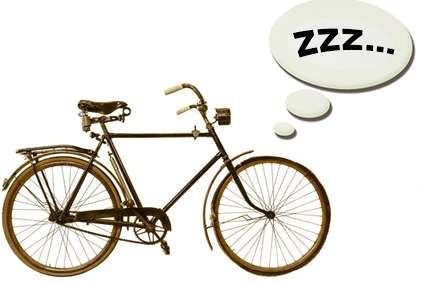Plays on Words
/On-Camera Joke
Why can’t a bicycle stand on its own? Because it’s two-tired.
Background
The expression “on its own” means alone, without help.
What’s So Funny?
The punch line to this joke has a double meaning. The adjective for something with two tires is two-tired. This expression sounds just like “too tired,” a good reason for not being able to stand up.
What Is a Pun?
A pun, also called a play on words, uses two phrases that sound alike. Some of your American friends love to make these kinds of word plays. The ones who don’t will usually groan when they hear a pun. Punsters don’t really need their audience to laugh at their puns, but they do expect some form of recognition that the word play was clever. In that regard, a simple frown, groan, or roll of the eyes are sufficient to acknowledge that something witty was attempted.
Some Examples of Puns
Which of these double meanings can you catch?
- She was only a whiskey maker, but he loved her still.
- The butcher backed into the meat grinder and got a little behind in his work.
- No matter how much you push the envelope, it'll still be stationery.
- A dog gave birth to puppies near the road and was cited for littering.
- Two silk worms had a race. They ended up in a tie.
- Time flies like an arrow. Fruit flies like a banana.
- A hole has been found in the nudist camp wall. The police are looking into it.
- Atheism is a non-prophet organization.
- Two hats were hanging on a rack in the hallway. One hat said to the other, “You stay here, I'll go on a head.”
- A small boy swallowed some coins and was taken to a hospital. When his grandmother telephoned to ask how he was, a nurse said, “No change yet.”
Why you need to know this
Americans usually appreciate a clever play on words. Always be thinking of double meanings that their words might have.
Share with us your favorite puns in our comment section!





